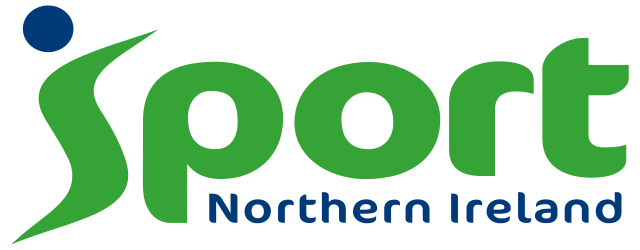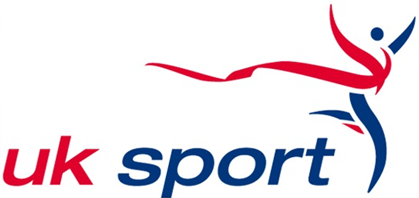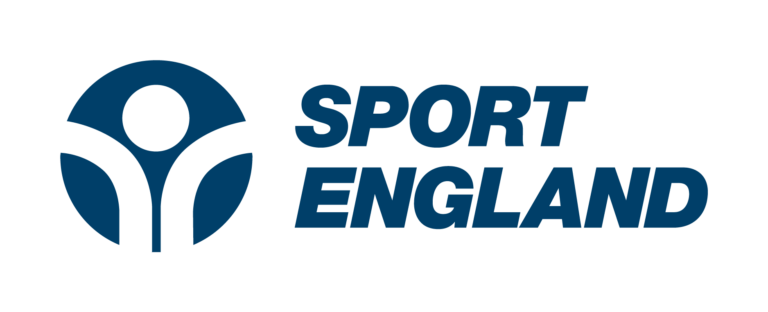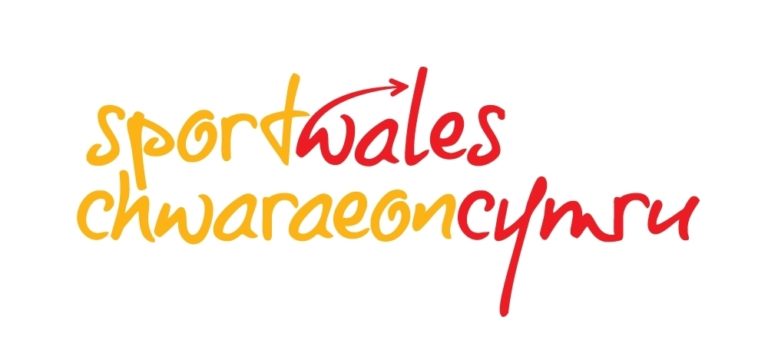Development Associates Programme Pt.2 – Jumping into the projects
by Parkour UK
Chris Grant
In 2007 I launched Glasgow Parkour Coaching as one of the first Parkour businesses in the UK. It’s fair to say I made it up as I went along for the majority of the time and struggled to find support or other businesses who could relate enough to Parkour. This led in the early days to multiple barriers around creating the right paperwork, trying to find funding and generally presenting the right trust and credibility to potential clients.
My journey is not an unusual one and there is a variant of this story for most of the early parkour businesses around the world and among our membership at Parkour UK.
For that reason it was no surprise that a business toolkit and a funding directory were towards the top of the list of requests from our members. This timed perfectly with the development associates programme and gave us strong tangible areas of focus for their work.
Business Toolkit
Our DA’s Izzy Perry and Mark Cordeaux were given the task of understanding the needs of Parkour companies and developing the toolkit:
“The project kickstarted with gaining an understanding into Parkour and the audit they have undertaken over the previous year. This report showcased some key themes that the business toolkit should focus on to support the companies. Being able to speak to one of the owners of a company was very insightful to confirm which areas we should focus on to be of the most use to their businesses. From then we brainstormed what the focus of the toolkit would be and individually worked on the different elements that built the tool. “ Izzy
A crucial aspect to the business toolkit project was to find and curate the good practice that was already out there and our members were more than willing to help. We believe strongly in the collective knowledge from our community and want that to drive our projects.
“Our project could not have been complete without the input of those who we wanted to benefit most from our support. The parkour community were fantastic whenever we had interactions with them, be that interviews via zoom to understand the needs of their organisation or sharing documents to be used as a start point for our business toolkit work, everyone we engaged with actively contributed to the documents the business toolkit team have produced.” Mark
The brilliant work that Mark and Izzy have put in has created a useful tool for any parkour business looking to improve their current practice. Izzy and Mark’s experience in community sport across organisations like Youth Sport Trust and Basketball England has brought a wealth of knowledge and experience into Parkour UK that’s going to make an impact on our community through the toolkit.
We are excited that this will also provide a stepping stone for any new emerging parkour companies to overcome some of the initial barriers that the ‘older’ companies may have faced in the past.
Funding Directory
Our current members had seen varying success on funding over the years. We know there is a demand to provide a more streamlined, central place to access information on different types of funding, provide tips and advice, and also give advice based on some of the good practice the community has already demonstrated.
We also know that the funding landscape is very large and variable, and this particular project probably posed the biggest challenge in terms of scale. Our DAs Sarah and Becky of course rose to that challenge and started by hearing the experiences of our members:
“Following several conversations with members of the parkour community, (notably Gordon Tsang from Parkour Outreach, Daniel Timms from Jump PK and Frazer Meek from Fludity Freerun) I was able to gain an insight into parkour community as these individuals shared their personal experiences and gave me a wider understanding of how parkour clubs are set up and operate, alongside the challenges they have faced. “ Sarah
In the same way parkour business had launched – their company set ups and funding success had happened in varied and organic ways. Becky and Sarah worked tirelessly on curating a detailed, thorough understanding of how different business set ups can affect their ability to access funding. Their previous experience of fundraising and/or supporting clubs in other sectors helped bring that part of the toolkit together.
What really impressed us about Becky and Sarah was their ability to bring together some great resources from a very large funding landscape – and this was achieved largely off their own initiative with minimal support from the team at Parkour UK.
“We were given relative autonomy as associates to deliver the project, which was refreshing. Whilst the time frame in which to complete the project was tight, the shared focus on the outcome goal helped it to feel achievable.” Becky
Parkour UK has gained a funding directory, funding tips and a detailed advice table on what different company set ups means for accessing funding. We cant wait to get this online and available to access for the community.
The Parkour UK team and the community are very grateful to Izzy, Mark, Becky and Sarah.
Having access to their varying experience across the sport development world and their ‘fresh eye; on the Parkour community meant that the end product is richer, more objective and more valuable than anything we could have created at Parkour UK internally. That doesn’t even account for the hours, commitment and focus the Development Associates brought to the projects.
Next up in the Blog Series we will talk about the Schools and Further Education toolkits.

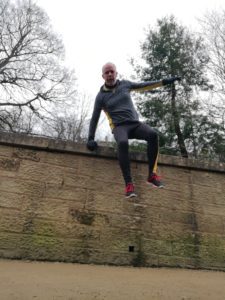
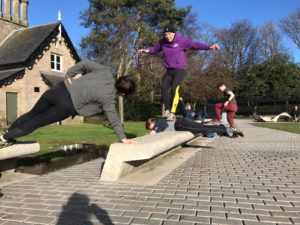
 Parkour is made for collaboration with other groups, and these partnerships have been catalysts for change across sport, community development, education and the arts. It is very exciting for us to see that the core principles and culture of parkour – which have persisted since the beginning of the sport – are in-built in the new strategy’s approach. This means that parkour is positioned to do what it already does very well.
Parkour is made for collaboration with other groups, and these partnerships have been catalysts for change across sport, community development, education and the arts. It is very exciting for us to see that the core principles and culture of parkour – which have persisted since the beginning of the sport – are in-built in the new strategy’s approach. This means that parkour is positioned to do what it already does very well.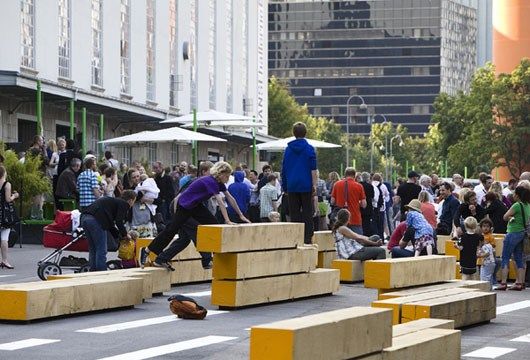 There are great examples from around the world of using space in multiple ways to encourage movement and play. In Denmark,
There are great examples from around the world of using space in multiple ways to encourage movement and play. In Denmark,  In Newcastle, Australia the Project Market Garden was designed along with
In Newcastle, Australia the Project Market Garden was designed along with 